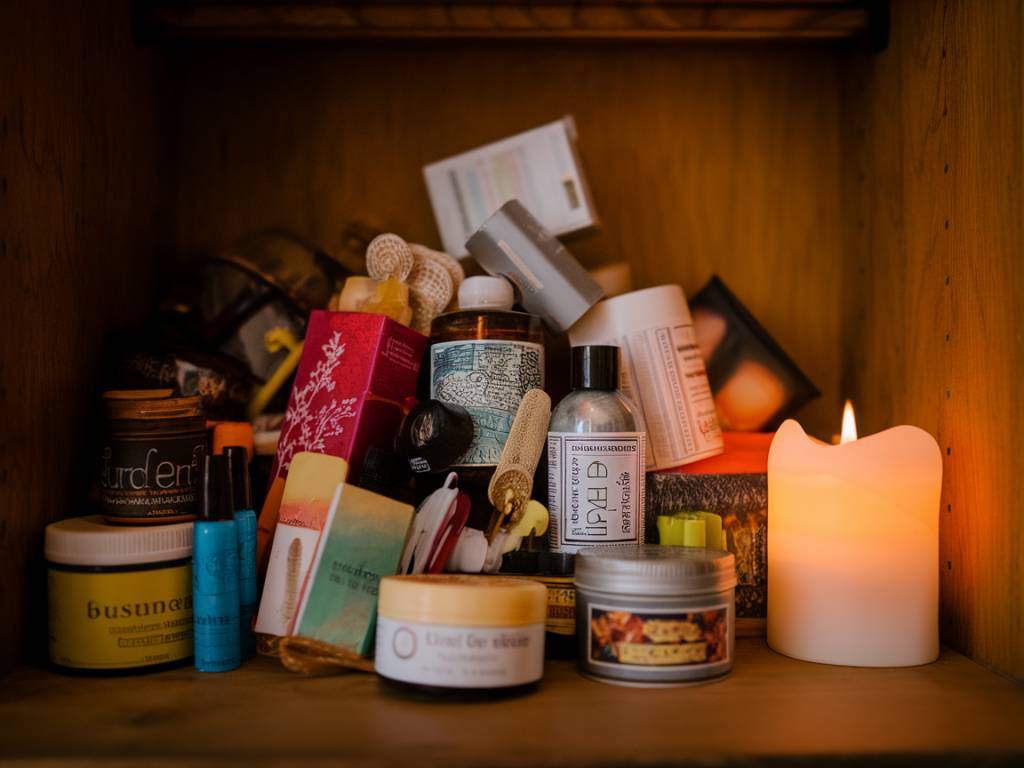
Hey there, lovely readers! It’s Sean here, and today I’m diving into a topic that’s both surprising and a little bit spooky: the unexpected health risks of air fresheners and scented products. If you’re like me, you probably enjoy having a fresh-smelling home, but is there a hidden cost to our love of fragrance? Spoiler alert: there is! So, let’s jump right into it and uncover what we might be exposing ourselves to when we spritz that air freshener.
What Exactly Are Air Fresheners and Scented Products?
First things first, let’s get on the same page. Air fresheners and scented products come in many forms. Think of sprays, plug-ins, scented candles, gels, and even those cute little tree-shaped car air fresheners. They all promise to bring a delightful aroma into our lives, masking unpleasant smells and giving us a sense of cleanliness. But what’s actually in these products?
The majority of them contain a cocktail of chemicals, including volatile organic compounds (VOCs), phthalates, and synthetic fragrances. These ingredients are designed to disperse into the air, making everything smell lovely. However, their impact goes beyond just smell.
The Sinister Side of Scented Products
A growing body of research is emerging on the potential health risks associated with these chemicals. And let’s just say, it’s not a sweet-smelling story.
Volatile Organic Compounds (VOCs)
VOCs are chemicals that easily become vapors or gases. They are emitted by a variety of products, including air fresheners. Common VOCs include formaldehyde, benzene, and toluene. Here’s why you should be concerned:
- Formaldehyde is a known carcinogen. Prolonged exposure can increase your risk of developing cancer.
- Benzene is another scary one. Long-term exposure to benzene can affect bone marrow and can cause blood disorders like leukemia.
- Toluene can affect your central nervous system and may cause symptoms like headaches, dizziness, and even memory loss.
Yikes, right?
Phthalates and Their Pesky Prowess
Phthalates are chemicals used to help fragrances last longer. They might not be listed on the packaging because they often fall under the umbrella of « fragrance. » Here’s what you need to know:
- Phthalates have been linked to hormone disruption. This is particularly concerning for pregnant women and children, as it can affect development.
- Exposure to phthalates has been associated with reproductive issues in both men and women.
- Some studies suggest a link between phthalates and asthma.
I’m not saying you should freak out, but maybe it’s time to give your scented products a second thought.
Allergic Reactions and Respiratory Issues
You might be thinking, « Well, I don’t have cancer, so I must be fine. » Hold your horses! Even if you’re not dealing with life-threatening conditions, scented products can cause immediate unpleasant effects:
- Many people are allergic to synthetic fragrances, leading to symptoms like sneezing, itching, and even rashes.
- For those with asthma or other respiratory conditions, air fresheners can be a nightmare. They can trigger attacks and make breathing more difficult.
- Headaches and migraines are also common complaints. Some people are incredibly sensitive to smells and can have their day ruined by a “pleasant” fragrance.
As someone who loves both fresh air and an itch-free nose, I find this particularly frustrating!
Environmental Impact
Beyond our personal health, let’s not forget Mother Earth. The production and disposal of air fresheners and scented products have environmental consequences:
- The chemicals released into the air contribute to indoor air pollution, which can be even more harmful than outdoor pollution.
- When we throw away scented products, their chemicals can leach into soil and waterways, affecting wildlife.
- Many aerosol air fresheners contain propellants that contribute to air pollution and global warming.
So, not only are we putting ourselves at risk, but we’re also taking a toll on the planet. That fresh-smelling room may not be worth it, after all.
Alternatives to Commercial Air Fresheners
Alright, now that I’ve scared you (sorry about that), let’s talk about alternatives. There are plenty of ways to keep your home smelling fresh without resorting to chemical-laden products:
Natural Air Fresheners
- Essential oils: These concentrated oils come from plants and have natural fragrances. Use a diffuser to spread the aroma throughout your home.
- Baking soda: This household staple can neutralize odors. Place a small bowl of it in rooms that need freshening up.
- Vinegar: Mix it with water and use it as a spray to neutralize odors. The vinegar smell dissipates quickly, leaving your home fresh and clean.
DIY Solutions
If you like a bit of a project, here are a few DIY solutions:
- Lemon and Herb Diffuser: Slice a lemon, add some rosemary or eucalyptus, and place it in a bowl of water. It’s simple but effective.
- Homemade Potpourri: Combine dried flowers, spices like cinnamon and cloves, and a few drops of essential oil in a bowl. Stir occasionally to release the scent.
- Gel Air Fresheners: Mix gelatin with water, salt, and essential oils in a jar. Add some food coloring for fun! Let it set, and voilà—homemade gel air fresheners.
Improve Airflow
- Open windows: This might seem obvious, but letting fresh air circulate can do wonders.
- Houseplants: Many plants, such as aloe vera or peace lilies, can help purify the air and add a natural fragrance.
- Ventilation systems: Use exhaust fans in kitchens and bathrooms to eliminate odors at the source.
By now, you’re probably rethinking that air freshener spray in your bathroom cabinet. Remember, what smells good isn’t always good for you. Take some time to evaluate the products you’re using, and consider making the switch to natural alternatives. Your health—and the planet’s—will thank you for it.
Until next time, stay fresh and stay safe!
Sean


